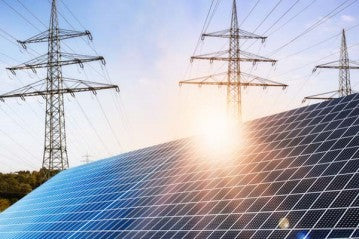
As the world embraces renewable energy sources, solar power has emerged as a sustainable and cost-effective solution for homeowners and businesses alike. The number of solar panels you need to install depends on various factors that cater to your specific requirements. In this blog post, we will delve into the key considerations that can help you determine the ideal quantity of solar panels for your needs, ensuring you make an informed decision.
1. Amount of energy you use on an average day
Before diving into the technical aspects, it is crucial to assess your average daily energy consumption. By examining your utility bills or using energy monitoring tools, you can gain insights into your energy usage patterns. This analysis provides a baseline for estimating the solar energy output you require to offset your electricity consumption.
Solar panels are rated in terms of their power output, usually measured in watts (W) or kilowatts (kW). On average, a residential solar panel has a capacity ranging from 250W to 400W. By dividing your average daily energy consumption (in kilowatt-hours, kWh) by the wattage of a single panel, you can obtain an initial estimate of the number of panels needed.
However, keep in mind that this calculation serves as a starting point, and additional factors need consideration for accurate results.
2. Peak sun hours in your city
The availability of sunlight varies depending on your geographical location. The concept of "peak sun hours" refers to the number of hours when the sun's intensity is sufficient for solar panels to generate maximum power output. This factor directly impacts the efficiency of your solar panels and determines how many panels you need to produce the desired amount of electricity.
By researching your city's average peak sun hours, you can estimate the effectiveness of solar panels in your region. For example, an area with five peak sun hours might require fewer panels to generate the same amount of energy as an area with three peak sun hours. Consulting solar resource maps or contacting local solar installers can provide accurate information tailored to your location.
3. Roof space available to install solar panels
The physical area available on your roof for solar panel installation is a significant factor in determining the number of panels you can accommodate. The size and layout of your roof will directly impact the solar panel array's capacity and, consequently, the overall energy generation potential.
Solar panels come in various sizes and dimensions. On average, a solar panel measures around 65 inches by 39 inches (165 cm by 99 cm) and occupies around 15 to 20 square feet (1.4 to 1.9 square meters). By measuring your available roof space and considering factors like shading and obstructions, you can estimate the number of panels that can be comfortably installed.
4. Capability of your solar storage system
While solar panels generate energy during the day, an energy storage system, such as batteries, can store excess electricity for use during nighttime or periods of low sunlight. The capacity of your energy storage system will influence the number of panels you need to install.
By analyzing your energy usage patterns and considering the autonomy you desire during non-sunlight hours, you can determine the storage capacity required. A larger storage capacity allows for a smaller solar panel system, as the excess energy can be stored and used when needed.
5. Your budget
One of the most critical considerations in any solar panel installation project is your budget. The number of panels you can afford will depend on the financial resources allocated to your solar energy system. It's essential to strike a balance between the desired energy generation capacity and your financial constraints.
Consider reaching out to multiple solar installers to obtain quotes and compare prices. Additionally, explore available financial incentives, such as government rebates or tax credits, which can help offset the initial costs.
Conclusion
Determining the right quantity of solar panels for your energy needs requires careful evaluation of various factors. By assessing your average daily energy consumption, understanding the peak sun hours in your location, considering the available roof space, evaluating your energy storage requirements, and setting a budget, you can make an informed decision.
Remember to consult with reputable solar energy professionals who can assess your specific requirements and provide personalized recommendations. Investing in the right number of solar panels ensures optimal energy generation, cost savings, and a significant step toward a greener future.

0 Kommentare